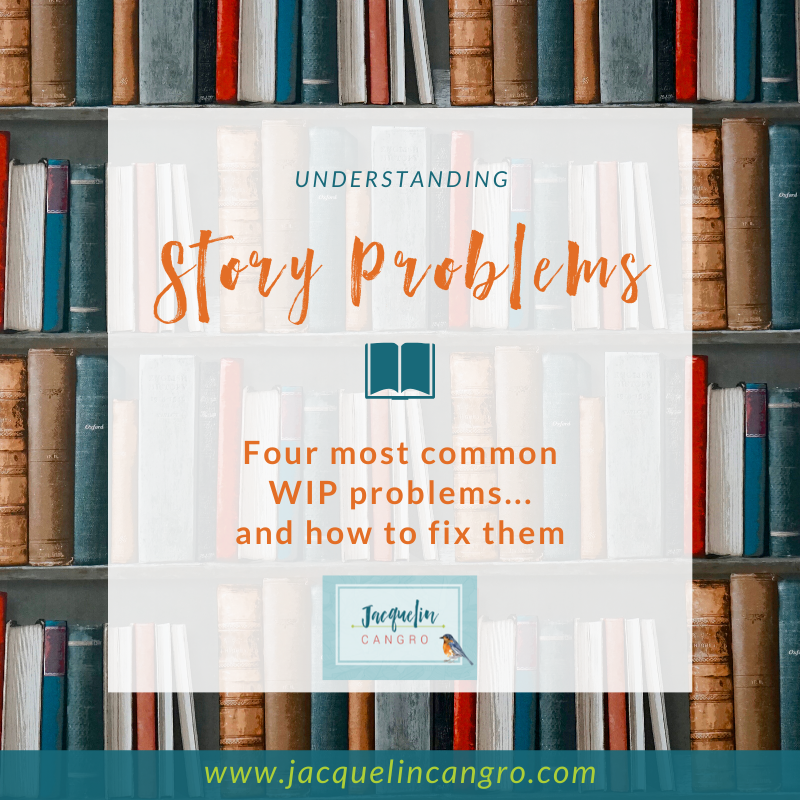As a developmental editor, I see many of the same issues in novel and memoir manuscripts. The good news is that none of these issues are deal breakers for your WIP. Here are the four most common problems I find in manuscripts…and a few tips to fix them.
_____
1. Misunderstanding the Purpose of a Scene
Scenes aren’t simply a way to move your characters from point A to point B. They aren’t just Things That Happen. A scene is a micro-story within your larger story. It has a beginning, middle, and end. It has tension, It advances the plot. It develops character. Most importantly, scenes build upon one another. They’re not discreet vignettes that stand alone. The action of one scene should lead in some part to the action in the next scene or there should be some kind of cause and effect relationship.
_____
2. Undefined Antagonists
The term “antagonist” means someone who opposes or stands in the way of the protagonist. This doesn’t have to be a villainous character — a Voldemort or a Cruella de Vil. It can be someone very close to your protagonist who they like or even love. Perhaps your protagonist’s well-meaning mother insists she attend the Ivy League university, refusing to pay tuition to the art school she’d much rather attend. Her mother is standing in her way of achieving her goal. So she has become a type of antagonist.
Often I edit novels and memoirs without any antagonists or an antagonist that is a system, e.g. the government, rather than an individual. If your protagonist is fighting a system, try to put a face on it. Your protagonist needs someone, rather than something, to work against.

3. Lack of Setting Details (Or Too Many)
I can’t tell you how many novels and memoirs I edit where the setting ends up being like that old “set it and forget it” commercial. We’re told the location — Austin or Atlanta or Amsterdam — on page one and it’s never mentioned again. In other words, the setting is generic. We could be anywhere. Don’t miss this opportunity to immerse the reader in your characters’ world with specific details. Setting is layered and builds over the course of the story. Fantasy, science fiction, and historical fiction writers often head in the opposite direction, overwhelming the reader with world building to the point of neglecting character development.
While genre plays a role in the amount of setting details that readers expect, it is not a license to overdo or abandon location. BTW: I love this topic so much I created a self-paced course with five lessons to help you next-level your setting game More information here.
_____
4. Lack of Conflict
Tension and conflict are the reasons we’re reading. Without it, the story isn’t compelling and there is little reason to keep turning the pages. I think this can stem from confusion between story conflict and a troubled past. Let’s say your protagonist was bullied in school. They may face ongoing emotional struggles to overcome this difficulty, but this in itself is not story conflict. This struggle may affect how they respond to events; in most cases, it isn’t creating the event.
If your character doesn’t have to overcome any roadblocks, conflict and tension plummet. Make sure your protagonist is working to overcome obstacles to achieve their goal.
Do you find yourself struggling with any of these issues in your novel or memoir? Post them in the comments and let’s discuss!
NEW ONLINE COURSE ALERT! If you’ve been wondering how to develop your protagonist’s inner life, my new GrubStreet class The Interior Lives of Characters is for you! we will go over the essentials of character interiority, and explore tools and techniques to express your characters’ thoughts and emotions to reveal their perspective, worldview, and goals. Each week, we will explore a different aspect of interiority––including narrative, tension, point of view, and backstory. Class is four weeks and begins June 10. Hope to see you there!



Hi Jackie,
Mistakenly commented about this post on your last one! So adding that Rebecca Serle’s book surprised me in a good way too. Always glad to receive your posts. Lorraine
Yes, indeed! I found her book quite compelling, despite that it is only about 250 pages. Rebecca Serle packed a lot of punch in a small space. I so enjoy your book reviews. 🙂